Fleurs du Mal Magazine


Or see the index
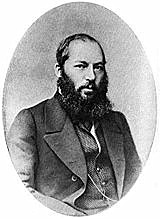
Afanasi Fet
(1820 – 1892)
Kolkende storm . . .
Kolkende storm in de luchtzee,
Kokend van woede het sop;
Kolkende zee van gedachten,
Kokend van woede mijn kop;
Kolkende zee van gedachten,
Stortvloed van drift in de kop;
Donkere wolken op wolken,
Kokend van woede het sop.
Afanasi Fet, Буря на небе вечерный, 1842
Vertaling Paul Bezembinder 2016
Paul Bezembinder studeerde theoretische natuurkunde in Nijmegen. In zijn poëzie zoekt hij in vooral klassieke versvormen en thema’s naar de balans tussen serieuze poëzie, pastiche en smartlap. Zijn gedichten (Nederlands) en vertalingen (Russisch-Nederlands) verschenen in verschillende (online) literaire tijdschriften. Voorbeelden van zijn werk zijn te vinden op zijn website: www.paulbezembinder.nl
fleursdumal.nl magazine
More in: Archive E-F, Fet, Fet, Afanasi

F. Scott Fitzgerald
Rain before dawn
The dull, faint patter in the drooping hours
Drifts in upon my sleep and fills my hair
With damp; the burden of the heavy air
Is strewn upon me where my tired soul cowers,
Shrinking like some lone queen in empty towers
Dying. Blind with unrest I grow aware:
The pounding of broad wings drifts down the stair
And sates me like the heavy scent of flowers.
I lie upon my heart. My eyes like hands
Grip at the soggy pillow. Now the dawn
Tears from her wetted breast the splattered blouse
Of night; lead-eyed and moist she straggles o’er the lawn,
Between the curtains brooding stares and stands
Like some drenched swimmer — Death’s within the house!
F. Scott Fitzgerald (1896 – 1940)
Poem: Rain before dawn
fleursdumal.nl magazine
More in: Archive E-F, F. Scott Fitzgerald, Fitzgerald, F. Scott
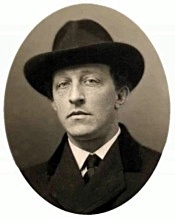
Aleksandr Blok
(1880–1921)
Pieter slaapt
Pieter slaapt, in mist verzonken,
Lamplicht glinstert op de straat,
De Nevá weerspiegelt vonken
Van een verre dageraad.
In die verre gloed van morgen,
In de schijnsels van de nacht,
Houdt zich sluimerend verborgen
Hoeveel treurigheid mij wacht.
Aleksandr Blok, Город спит…, 1899
Vertaling Paul Bezembinder 2017
Paul Bezembinder studeerde theoretische natuurkunde in Nijmegen. In zijn poëzie zoekt hij in vooral klassieke versvormen en thema’s naar de balans tussen serieuze poëzie, pastiche en smartlap. Zijn gedichten (Nederlands) en vertalingen (Russisch-Nederlands) verschenen in verschillende (online) literaire tijdschriften. Voorbeelden van zijn werk zijn te vinden op zijn website, www.paulbezembinder.nl
fleursdumal.nl magazine
More in: Archive A-B, Blok, Blok, Aleksandr
De Voedselbank is een bewerkt fragment uit Niels Landstra’s debuutroman: Monddood. Monddood verschijnt in de loop van 2017 bij uitgeverij Droomvallei.

De Voedselbank (1)
De Voedselbank bevond zich in een oud pand naast een kerk, de voormalige pastorie. De bel-etage was te bereiken via een stenen opgaande trap. Net toen ik aan wilde bellen, zwaaide de voordeur voor mij open, stierf een stem weg in een schemerige hal met donkerbruine lambrisering en witte afbladderende wanden. Bij een vestibule met twee deuren, deed een vertrek dienst als kantoor en de andere als ontvangstruimte; door de hoge ramen vielen repen zonlicht met warrelende stofdeeltjes.
Ik had een oploop bij de afhaal van de voormalige pastorie verwacht, een stroom mensen in kringloopkleren en tassen vol eten, rammelende boodschappenkratten en het gerinkel van flessen, maar hier klonk alleen het geroezemoes van een handvol mensen die aan een gemeenschappelijke tafel koffie dronken.
‘Is dit de Voedselbank?’ vroeg ik aan niemand in het bijzonder.
‘Nou, niet helemaal,’ antwoordde een oude vrouw die moeilijk sprak. Haar bovenlip toonde twee stompjes van tanden. ‘Hoe komt u daar nou bij?’
‘Een sociaal werker van de gemeente stuurde mij hier naar toe.’
‘Alleen ongedocumenteerden kunnen hier eten mee krijgen.’
‘O.’
‘Dat zijn mensen zonder geldige identiteitspapieren.’ Ze monsterde mij van top tot teen. ‘Uit welk land komt u?’ informeerde ze.
‘Kopje koffie?’ bood een hoogbejaarde struise dame aan. ‘En gaat u even zitten. Er is een vergadering van de Straatraad.’
Aan een ovale tafel namen druppelsgewijs mannen plaats. Het waren er een stuk of tien, tussen de twintig en ongeveer veertig jaar oud. Omdat al die anderen die op straat leefden bij voorkeur onzichtbaar bleven of nog gelatener waren dan dit gezelschap – ver verwijderd van het aards bestaan alleen nog hoopten op overleving. Of niet.
De twee jongedames die de vergadering openden brachten namens hun maatschappelijke organisatie te berde dat armoede een gezicht moest krijgen. Binnenkort werden er scholen in de regio bezocht om kinderen te laten zien wat de maatschappij met je deed als je in verval was geraakt en je niet langer als ‘volwaardig mens’ werd beschouwd.
De mollige fotograaf van een provinciale krant, stond op met zijn camera in de aanslag. Hij maakte een kiekje van de dames die geposeerd in de lens gluurden.
Daarna fotografeerde hij Arie. Met zijn tweeënveertig jaar was hij de oudste van de aanwezige daklozen. In een slok leegde hij met zijn gehavende gebit een blik bier en schudde in een soort van wanstaltige ijdelheid zijn paardenstaart heen en weer.
Ronald, een treurig ogende donkerharige dertiger met een verpauperd gebit, deed alsof hij niets merkte van de camera en friemelde met zijn vingers. Hij trok rond op zijn fiets en bivakkeerde met zijn tent in het bos. Door een vechtscheiding was hij alles kwijt geraakt, zijn kinderen, geld, en een dak boven zijn hoofd.
Toen de camera op Frank werd gericht, schermde hij met een hand zijn gezicht af. De midden dertiger leefde al tien jaar op straat van de opbrengst uit prullenbakken. Hij zou zich dood schamen tegenover zijn vrienden van de Technische Universiteit als ze hem in deze hoedanigheid aanschouwden.
Arie was de enige die instemde om scholen af te gaan en zijn bestaan als voormalige dakloze over het voetlicht te brengen. Hij wilde alleen niet dat hij op de school van zijn kinderen een lezing moest geven. Als hij was afgekickt van de drank, zou hij overwegen het contact met hen op te pakken, eerder niet. Hij opende zijn tweede blikje Heineken en liep de tuin in om er te roken.
Onder een houten afdak scholen de daklozen voor de regen. Elke verschoppeling had er zijn verhaal. Ergens was het fout gegaan. Een faillissement. Een ziekte die de loopbaan verknalde. Alcoholisme, drugs, gokken. De onvermijdelijke echtscheiding. De vrouw die zonder enige waarheidsvinding toch altijd gelijk krijgt. En voor de man, haast kinderloos verklaard door instanties die altijd meeveren met de moeder van de kinderen, doet de wurggreep van rap oplopende schulden zich voor. Gaat alles voor hem verloren wat eerst heel en volwaardig was. Wie houdt het dan nog vol om niet aan lager wal te geraken?
Ronald gaf toe dat hij worstelde met zijn ‘normale’ bestaan. Toen hij nog volop verwikkeld was in de vechtscheiding, kreeg hij een woning toegewezen en een uitkering in de vorm van leenbijstand die hij later moest terugbetalen als zijn woning was verkocht.
Ronald liep gelijk averij op met het betalen van de huur en kosten voor water en licht, want de gemeente was traag in de afwikkeling van zijn dossier. Gedurende die periode van zes weken kreeg hij 50 euro per week voorgeschoten, maar dat broodgeld stond vaak laat op zijn bankrekening of helemaal niet, zodat hij, hoewel hij nu in een appartement woonde, nog steeds gedwongen was om prullenbakken af te struinen op zoek naar eten.
Maar het geluk leek aan zijn zijde te staan, toen hij een oude schoolvriendin tegen het lijf liep. Net als hij lag ze in echtscheiding, en, samen overgeleverd aan hetzelfde lot, vonden ze troost en warmte bij elkaar, met name in haar woning. Voor de vorm sliep hij enkele dagen in zijn appartement zonder meubels, tv, internet en telefoon, maar dat voorkwam niet dat de sociale recherche ze in de smiezen had en waarnemingen deden, zoals de ambtenaren dat noemden. Ze hielden hun huizen in de gaten, registreerden de tijden waarop hij bij haar was en hoe lang hij in zijn eigen woning verbleef. Het gevolg was dat ze werden gepakt voor bijstandsfraude. Als moeder van twee kleine kinderen raakte ze haar eenoudertoeslag kwijt, zijn uitkering werd gevorderd en hij kreeg een boete. Er volgden incassobureaus, deurwaardersexploten, en tenslotte een huisuitzetting, met politie erbij, wat de deurwaarder een doos met verroeste pannen en een krakkemikkige stoel opleverde.
Ronald kocht van zijn laatste geld een fiets en een tent en hij gooide de sleutel van de woning door de brievenbus: liever de vrijheid van de straat dan de heerszucht van het regime.
De dubbele tuindeur van de voormalige pastorie zwaaide open en een jonge vrouw verscheen buiten. Resoluut nam ze mij bij de arm mee naar het kantoor. Rakelings over de voeten gereden door een zwaarlijvige vrouw in een zoemende scootmobiel, deelde ze mee dat ik hier helemaal verkeerd zat. De officiële Voedselbank was in Noord. Ze vulde een formulier voor een noodvoedselpakket voor me in en meldde me aan. Dat was een beetje tegen de regels in, vertrouwde ze mij toe. Zonder de naam van een maatschappelijk werkster mocht ze dit niet doen. Maar nood breekt wetten, zei ze. Ondertussen pleegde ze een telefoontje voor een Zuid-Amerikaanse moeder en haar dochter die op haar schoot kraaide van plezier. Down syndroom.
Het kon altijd erger, besefte ik, terwijl mijn troosteres met haar handen achteloos over het glanzende haar van het meisje streek. Ze was begin dertig en geen rimpel tekende zich af in haar wasbleke gezicht.
Was zij nou een soort moeder Teresa wier maagdelijke lichaam later op hoge leeftijd ter aarde werd besteld?
In België ging ik kijken naar een camper die te koop stond bij de firma Used Cars in Namen. Tussen de exclusieve Italiaanse auto’s op het terrein van de dealer, met name Ferrari’s, stond de oude camper er als verloren bij.
Ik was op slag verliefd op de witte kampeerbus.
Alles was in goede staat, drukte de verkoper mij op het hart. De omstreeks zestigjarige man ging mij langs een metalen uitklapbaar trapje voor naar binnen toe. Hij toonde mij de badkamer met toilet en douche, die door het witte plastic en de blinkende spiegels een frisse aanblik bood.
Het was heerlijk om na een zomerse dag aan het strand te kunnen douchen in de camper, wist de verkoper, en hij zette de kraan aan waar geen druppel uit kwam.
‘De watertank moet nog worden gevuld,’ zei hij in West-Vlaams dialect, met het inslikken van de n, ‘maar dan hebt ge ook meteen honderd liter bij u.’
De Belg liet mij de keuken van de Fiat Ducato zien. Omdat de ijskast zowel op de accu als op een gasfles werkte, had ik onderweg de beschikking over ijsklontjes en gekoelde dranken: ik zou me in een hotel op wielen wanen, grapte hij. En mochten er kinderen mee gaan, die sliepen prima achterin de camper. De bank was in een handomdraai omgetoverd tot tweepersoonsbed.
Ik zag het al voor me: dat Eva en Hanna met hun slaperige hoofden ontwaakten in een ander land en ik ze trakteerde op een uitgebreid ontbijt met koele glazen jus d’orange.
Op de bijrijdersstoel, met een sacherijnige autoverkoper naast me die de camper bestuurde, maakte ik een proefrit. De Fiat diesel maakte een licht schrapend geluid, alsof er in de motor iets aanliep, maar de verkoper, Giovanni, betoogde met een onvervalste Italiaanse tongval, dat de vorige eigenaren, een hoogbejaard stel, hun bezit had gekoesterd en perfect onderhouden.
Ik vergiste mij vast, dacht ik. Had ik een andere keuze, wie weet wat ik dan gedaan zou hebben, maar die had ik niet, ik moest thuis weg, en als ik dan ging, was dit de beste oplossing.
De psycholoog die ik voor mijn vertrek uit mijn oude huis raadpleegde, Ajeet Raya, was een man van Surinaams Hindoestaanse afkomst met een zonnig karakter. Hij vermaakte zich om mijn relaas over de kenau die ik gehuwd had, maar stelde na enige sessies vast dat mijn psychische problemen situatief waren: de oplossing lag in het loslaten van het oude. Want waarom stelde ik alles zo lang uit? En als ik, zoals ik mij toen had voorgenomen, een camper kocht, had ik weliswaar geen huis, maar toch een dak boven mijn hoofd. Geen enkele situatie is ideaal, besloot hij. Ergens moest ik opnieuw beginnen.
Ik hakte de knoop door.
Niels Landstra: De Voedselbank (1)
wordt vervolgd
Niels Landstra (Ridderkerk, 1966) debuteerde in 2004 in Meander met het kortverhaal ‘Het portret’. Hierna volgden tientallen publicaties van korte verhalen, gedichten en interviews in literaire tijdschriften als De Brakke Hond, Deus ex machina, LAVA, en Op Ruwe Planken.
In 2012 verscheen zijn eerste gedichtenbundel: Waterval bij uitgeverij Oorsprong. In 2013 gevolgd door zijn bundel: Wreed het staren, en in 2014: Nader en Onverklaard. Zijn dichtbundel: Droef het zwieren uitgebracht, een bloemrijke reis, scherend langs momenten en passages vol weemoed, ontgoocheling en romantiek, opgetekend door de dichter tijdens een roerig, zwervend bestaan in een huis op vier wielen, verscheen in september 2016.
De dichter/schrijver/schilder/muzikant was een van de stadsdichters uit het Stadsdichterscollectief Breda, opgericht in 2014. In datzelfde jaar won hij een voorronde van de Poetry/Dobbelslam in Utrecht. In 2016 stond hij op de shortlist van Literairwerk.nl met zijn gedicht Retourbiljetten.
Landstra schildert daarnaast landschappen en stadsgezichten, die hij voorziet van gedichten. Deze zijn te vinden op ansichtkaarten van zijn werk en in zijn dichtbundels.
In 2017 verschijnt zijn debuutroman: Monddood bij uitgeverij Droomvallei. Het kortverhaal: De Voedselbank is daar een bewerkt fragment uit. Monddood is een rauwe, soms cynische roman, waarin de troosteloze absurditeit van het leven onmiskenbaar besloten ligt en haast schrijnend dichtbij komt. Door de elementen van tederheid, lyriek en melancholie die er zorgvuldig doorheen gecomponeerd zijn, ontstaat een modern drama dat balanceert op de wankele fundering van armoede, rouw en breekbare liefde.
Momenteel trekt Niels Landstra met zijn cabarateske theatershow Café De Puzzel door het land. Door zijn gedichten muzikaal te ondersteunen met gitaar en accordeon, en deze zelf te zingen en te declameren, dompelt hij het publiek onder in een stroom van taal en klanken. Niet in het minst doordat hij zijn voorstelling doorvlecht met het betere Nederlandstalige lied en tragikomische acts – ontstaat er een fascinerend geheel dat zich in een hoog tempo op de bühne afspeelt.
‘Dichten zoals je hoopt dat dichters dichten, en beter nog, dat is hoe Niels Landstra dicht’
Wim Daniëls
fleursdumal.nl magazine
More in: Archive K-L, Landstra, Niels, Niels Landstra
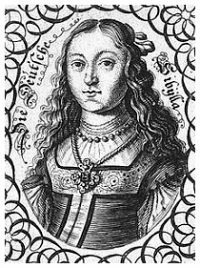
Sibylla Schwarz
Ein Christliches Sterblied
Wiltu noch nicht Augen kriegen,
O du gantz verbößte Welt,
Da du doch siehst niederliegen
Manchen außgeübten Helt,
Da du doch offt siehst begraben,
Die es nicht gemeinet haben!
Wie lang wiltu Wollust treiben?
Wielang, meinstu, hastu Zeit?
In der krancken Welt zu bleiben?
Wielang liebstu Uppigkeit?
Da doch einer nach dem andern
Muß auß disem Leben wandern.
Ey, was hastu fur Gedancken,
Wan da so viel Leichen stehn?
Wan da liegen so viel Krancken,
Die den Todt für Augen sehn?
Wan die Götter dieser Erden
Selber auch begraben werden?
Wirstu dich nicht eh bedencken,
Eh der warme Geist entweicht,
So wirstu dich ewig krencken,
Darümb, weil der Todt uns schleicht
Stündlich nach auff allen Seiten,
Soll man sich dazu bereiten.
Gib mir Gott ein Sehlig Ende,
Führ mich durch des Todes Thal,
Nimb mich fest in deine Hende,
Kürtze mir des Todtes Qual,
Laß mein Hertze nicht verzagen
Für des Todes grimmen Plagen!
Laß mir nach die schweren Sünde,
Gib mir deinen Frewdengeist,
Das ich Ruh der Sehlen finde!
Darüm bitt ich allermeist,
Laß mich auch ja nicht berauben,
Sondern mehr mir meinen Glauben!
Hier mein Gott, hie schlag und plage!
Hier, HERR Jesu, reck undt streck!
Hier hier trenne, brenn undt jage!
Hier reiß, schmeiß, krenck. senck undt schreck!
Laß mich hier die Straffe spüren,
Die mir solte dort gebüren!
Sibylla Schwarz (1621 – 1638)
Gedicht: Ein Christliches Sterblied
fleursdumal.nl magazine
More in: Archive S-T, SIbylla Schwarz
 From 24 May 2017, Museum de Fundatie in Zwolle will show 12 pastels by Bob Dylan (1941). The 2012 portrait series Face Value, on loan from The Bob and Jenny Ramsey Collection, is the first visual art by Dylan ever to be displayed in the Netherlands.
From 24 May 2017, Museum de Fundatie in Zwolle will show 12 pastels by Bob Dylan (1941). The 2012 portrait series Face Value, on loan from The Bob and Jenny Ramsey Collection, is the first visual art by Dylan ever to be displayed in the Netherlands.
The drawings are as direct and unpolished as his music. The ‘character studies’, as Dylan describes them, are portraits of three women and nine men. They look directly at the viewer with a certain impertinence. Dylan uses sharp lines to pin down the personalities, that are an amalgam of characteristics taken from his environment, and memories and interests in people both real and imaginary. The titles of the works combine what Dylan wishes to express (Losing Face, Face Down or In Your Face), followed by the first and family name of the person. There are no clear indications whether he really refers to pianist Sylvia Renard or author Nigel Julian.
Dylan selected the Face Value series for a show in London’s National Portrait Gallery in 2013. After London, the works were exhibited in Denmark, the United States and Germany, and can now be enjoyed in the Netherlands. The portraits have a unique place in his oeuvre. Ever since his youth, Dylan has made many sketches and drawings. He started working with oil paint in the sixties, but never before has he created such a comprehensive series of portraits. His use of colours in these pastels is also different: where he usually prefers a lot of expression and contrast, here he opts for four or five soft hues for the faces. Dylan works in layers; he starts by drawing the portraits in thin pencil lines, adds a soft pink or cream layer which he smooths out with his fingers and continues to develop the portrait with black or a dark brown. The drawings, like his songs, are expressions of an inventive imagination.
Dylan introduced his drawing talent to the public with something of a splash with his self-designed 1973 book Writings and Drawings, in which he combines lyrics with full-page ink drawings. He later published Drawn Blank (1989 and 1991-1992), to which he added a series of gouaches and watercolours 10 years ago.
In contrast to Dylan’s art, the museum also presents a portrait series of the Craeyvanger family, created more than 350 years earlier. Gerard ter Borch, Zwolle’s most internationally recognised artist, portrayed Willem Craeyvanger, Christine van der Wart and their eight children between 1651 and 1658. This comprehensive 17th century series of painted portraits of a single family is unique. Face Value is a continuation of previous exhibitions at Museum de Fundatie that focus on portraiture. The popularity of photo exhibition Dutch Identity (2016) and Look at Man! (finished January 2017) – displaying portraits by Bacon, Brancusi, Dumas and Richter – has proven that the ‘old’ genre of portraiture is certainly alive and well in the 21st century.
Bob Dylan was born in 1941 as Robert Allen Zimmerman. He signed his first record contract in 1961 and went on to become one of the most original and influential voices in the history of American folk and pop music. The 1963 release of his second album, The Freewheelin’ Bob Dylan, ensured his international artistic breakthrough. Subsequent years brought many classic songs such as Blowing In The Wind, The Times They Are A-Changin’, Subterranean Homesick Blues, Like A Rolling Stone, Knockin’ On Heaven’s Door and Hurricane. With an impressive back catalogue and a career spanning more than fifty years, Dylan still regularly tours the world. He was awarded the Nobel Prize for Literature on 13 October 2016, for “having created new poetic expressions within the great American song tradition”. He is the first lyricist to be awarded the coveted prize. Bob Dylan will be playing live in AFAS Live in Amsterdam on 16, 17 and 18 April. For more information on this: www.mojo.nl/bobdylan
 Bob Dylan: Face Value
Bob Dylan: Face Value
Published by National Portrait Gallery
Introduction by John Elderfield
With over 500 songs, 46 albums and an astonishing 110 million record sales to his name, Bob Dylan (born 1941), now in his early seventies, is turning increasingly to another mode of artistic expression; one that has occupied him throughout his life, but for which he is much less well known. Although Dylan has sketched and drawn since childhood and painted since the late 1960s, only relatively recently has he begun to exhibit his artworks. The 12 works collected in this beautifully produced volume represent his latest foray into portraiture. In an illuminating essay and a rare Q&A with Dylan, curator and art historian John Elderfield explores the story behind these works. For Elderfield, Dylan’s paintings, like his songs, are “products of the same extraordinary, inventive imagination, the same mind and eye, by the same story-telling artist, for whom showing and telling … are not easily separated.”
BOB DYLAN – Face value
From 24 may until 20 august 2017
Museum de Fundatie
Blijmarkt 20
8011 NE Zwolle
# Meer information on website De Fundatie
fleursdumal.nl magazine
More in: - Book News, Art & Literature News, Bob Dylan, DICTIONARY OF IDEAS, Dylan, Bob, FDM Art Gallery

Das 18. poesiefestival berlin: Europa: Fata Morgana startet am 16. Juni 2017. Das Haus für Poesie erwartet rund 170 Dichterinnen und Dichter sowie Künstlerinnen und Künstler aus 42 Ländern. Wunsch, Fata Morgana oder Realität – die Europäische Union ist ins Wanken geraten und mit ihr europäische Werte wie Meinungs- und Kunstfreiheit, Vielfalt und Demokratie. Das neuntägige Festival präsentiert Innen- und Außenansichten auf die EU und Europa in poetischer Auseinandersetzung – in Lesungen, Konzerten, Performances und Ausstellungen in der Akademie der Künste. Zu den Höhepunkten gehören der große Auftakt mit Weltklang, einem Konzert aus Stimmen und Sprachen, drei D poesie mit mehreren Produktionen zwischen Text, Musik und Tanz sowie Auf ein Wort, Europa, das 22 internationale Dichterstimmen zu einer vielsprachigen Installation versammelt.
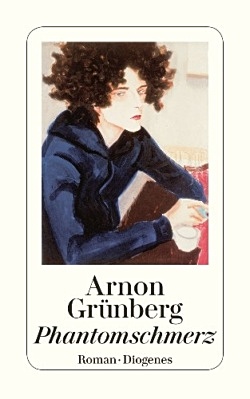 Weltklang – Nacht der Poesie
Weltklang – Nacht der Poesie
Freitag, 16.6., 19 Uhr
Das 18. poesiefestival berlin eröffnet mit Weltklang – Nacht der Poesie. Dichterinnen und Dichter aus verschiedenen Teilen der Welt lesen, performen und singen in ihrer Muttersprache. Eigens für diesen Abend erscheint eine Anthologie mit den deutschen Fassungen der Texte zum Mitlesen.
M. NourbeSe Philip aus Kanada, die ihre Wurzeln im karibischen Trinidad hat, trägt aus Zong! vor. Dem konzeptionellen Werk liegt ein juristischer Bericht über den Tod von 150 Afrikanern auf einem Sklavenschiff zugrunde. Die Gedichte des schottischen Autors John Burnside fangen „das Andersleben der Dinge ein“. Die deutsche Lyrikerin Dagmara Kraus schöpft an diesem Abend aus dem Fundus antiker Trauerkultur und moderner Plansprachen. Yasuki Fukushima ist einer der expressivsten Gegenwartslyriker Japans. Seine „zekkyō tanka“ (geschriene Tankas) trägt er zu Musik vor. Jan Wagner, der 2015 als erster Lyriker den Preis der Leipziger Buchmesse erhielt, verbindet höchste Formbeherrschung mit überraschenden Wendungen, ohne traditionalistisch zu sein.
Zudem lesen Arnon Grünberg (Niederlande), James Noël (Haiti), Mila Haugová (Slowakei), Sergio Raimondi (Argentinien) und Charlotte Van den Broeck (Belgien) beim diesjährigen Weltklang.
drei D poesie
Samstag, 17. Juni, 20 Uhr, Wiederholung: Sonntag, 18. Juni, 15 Uhr
Zwischen Musik, Tanz und Poesie bewegt sich drei D poesie. Auf dem 18. poesiefestival berlin spielen Künstlerinnen und Künstler mit den Möglichkeiten der drei Genres, loten die Grenzen aus und suchen nach Berührungspunkten. In der Performance Ingesture von
Lyriker Christian Hawkey, Komponist und Musiker Roy Carroll und Choreografin und Tänzerin Maya Matilda Carroll dreht es sich um die Schriften von Charlotte Wolff, eine jüdische, deutsch-britische Ärztin, Sexologin und Schriftstellerin des frühen 20. Jahrhunderts. Für n/achtfüssig verwenden die Choreografin und Tänzerin Anna Huber und der Komponist und Musiker Hubert Machnik unveröffentlichte, aus Printmedien ausgeschnittene und auf Postkarten arrangierte Gedichte von Herta Müller. In der dritten Produktion Schulter von α und anderen, fernen Ländern entwickeln der Komponist Markus Pesonen und der Choreograf und Tänzer Shang-Chi Sun zusammen mit dem KNM Quartett ihr Werk aus dem Text „die menschen von einst liebten den tanz“ von Daniel Falb.
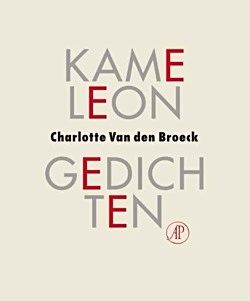 Auf ein Wort, Europa
Auf ein Wort, Europa
Sonntag, 18.6., 20 Uhr
22 Dichterinnen und Dichter aus den Anrainerstaaten der Europäischen Union treffen auf dem 18. poesiefestival berlin für eine poetische Installation aufeinander; unter ihnen ist Abbas Beydoun (Libanon), ein Mitbegründer der zweiten arabischen Moderne, Monzer Masri (Syrien), der mit seiner „Gegendichtung“ jenseits von formalen und inhaltlichen Erwartungen Debatten auslöst, und Sjón (Island), der für seine Texte für Björk in Lars von Triers „Dancer in the Dark“ bekannt ist. Wie zeigt sich derzeit die europäische Idee außerhalb der europäischen Gemeinschaft? Die Lyrikerinnen und Lyriker präsentieren ihre poetischen Antworten auf das ins Wanken geratene Europa. Ihre Texte über Realitäten, Träume und Ängste zur EU tragen sie als polyglotte Soundcollage vor.
„Auf ein Wort, Europa“ findet in Kooperation mit dem Forum Berlin der Friedrich-Ebert-Stiftung statt und wird gefördert vom Auswärtigen Amt.
VERSschmuggel kurdisch-deutsch
Dienstag, 20.6., 19.30 Uhr
Erstmals kommt kurdische Dichtung in Deutschland auf eine Festivalbühne. Mit ihrer langen mündlichen Tradition gehört das Kurdische trotz aller Repression zu den ältesten Sprachen der Welt. Die reiche kurdische Geschichte und Kultur spiegelt sich in vielen Dialekten und verschiedenen Schriftsystemen wider. Der kurdisch-deutsche VERSschmuggel bietet sechs kurdischen und sechs deutschen Dichterinnen und Dichtern Freiraum für ein Experiment: Paarweise übersetzen sie sich an drei Workshop-Tagen gegenseitig. Interlinearübersetzungen der Gedichte des jeweils anderen sind ihr Ausgangsmaterial, Dolmetscher übersetzen die Arbeitsgespräche. Die Ergebnisse dieser Zusammenarbeit werden auf dem 18. poesiefestival berlin präsentiert.
Es lesen Eskerê Boyîk (Armenien), Yildiz Çakar (Türkei), Kerîm Kurmanc (Iran), Fatma Savci (Türkei/Schweden), Anahîta Şêxê (Syrien) und Mueyed Teyîb (Irak) mit den deutschen Autorinnen und Autoren Mirko Bonné, Carolin Callies, Simone Kornappel, José Oliver, Ilma Rakusa und Tobias Roth.
„VERSschmuggel kurdisch-deutsch“ wird gefördert vom Auswärtigen Amt und der Stiftung Preußische Seehandlung und findet statt in Kooperation mit Literature Across Frontiers/Literary Europe Live, gefördert durch das Programm Creativ Europe der Europäischen Union. Mit Dank an Övgü Gökçe Yaşa, Programmkoordinatorin bei Diyarbakır Sanat Merkezi.
Poesie und Propaganda
Freitag, 23.6., 19.30 Uhr
Was passiert heute in den analogen und digitalen Medien mit unserer Sprache? Wie wird Meinung gemacht, wie wird mit Worten politische Wirklichkeit hergestellt, und welche Rolle spielt dabei deren ästhetische Funktion, die verführt, verdammt und erfindet? Eine interdisziplinär besetzte Gesprächsrunde diskutiert auf dem 18. poesiefestival berlin das komplexe Wechselspiel von Lyrik, Rhetorik und Politik. Geformte Sprache als Mittel unterschiedlicher politischer Gruppierungen wird diskutiert, und die Dichtung im Dienste radikaler politischer Programme in der Literaturgeschichte und heute in den Blick genommen – mit aktuellen Beispielen wie den Propagandagedichten des IS und der sprachlichen Selbstinszenierung der neuen „Populisten“.
Es diskutieren Paula Diehl, Politikwissenschaftlerin (Bielefeld), Ursula Krechel, Autorin (Berlin), Philippe Joseph Salazar, Philosoph und Professor für Rhetorik (Kapstadt) und Joseph Vogl, Kultur- und Literaturwissenschaftler (Berlin), moderiert von Eva Geulen, Zentrum für Literaturforschung (Berlin).
„Poesie und Propaganda“ wird gefördert vom Zentrum für Literatur- und Kulturforschung Berlin.
18. poesiefestival berlin: Europa_ Fata Morgana
16.-24. Juni 2017
Akademie der Künste, Hanseatenweg 10, 10557 Berlin
Das poesiefestival berlin ist ein Projekt des Hauses für Poesie in Kooperation mit der Akademie der Künste. Es wird gefördert durch den Hauptstadtkulturfonds und das Auswärtige Amt.
# website poesiefestival berlin
fleursdumal.nl magazine
More in: Arnon Grunberg, Art & Literature News, FDM in Berlin, Literary Events, MODERN POETRY, POETRY ARCHIVE
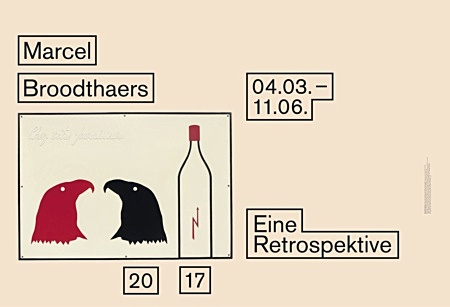
Marcel Broodthaers. Eine Retrospektive ist eine große Überblicksschau über das facettenreiche Werk des belgischen Künstlers Marcel Broodthaers (1924 –1976), der im Umfeld von Pop, Minimal und Konzeptkunst eine eigenwillige, kritische Position formuliert. Broodthaers wandte sich im Alter von vierzig Jahren von der Dichtung kommend der bildenden Kunst zu und fand mit seinen installativen, kinematografischen und institutionskritischen Arbeiten innerhalb kürzester Zeit großen Anklang in der avantgardistischen Kunstszene Europas.
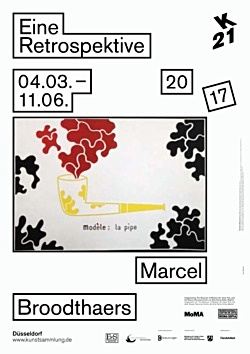 Die über vier Jahre am Museum of Modern Art, New York, und am Museo Nacional Centro de Arte Reina Sofia, Madrid, sorgfältig entwickelte Ausstellung von über 400 Werken unterschiedlichster Medien und Gattungen findet mit der Düsseldorfer Station ihren Abschluss an dem Ort, der Broodthaers’ kurze, aber höchst produktive künstlerische Karriere weitgehend befördert hat. In Düsseldorf hat Broodthaers nicht nur gelebt (von 1970 bis 1972) und entscheidende Impulse der lokalen, international bestens vernetzten Kunstszene aufgenommen, verarbeitet und zurückgegeben.
Die über vier Jahre am Museum of Modern Art, New York, und am Museo Nacional Centro de Arte Reina Sofia, Madrid, sorgfältig entwickelte Ausstellung von über 400 Werken unterschiedlichster Medien und Gattungen findet mit der Düsseldorfer Station ihren Abschluss an dem Ort, der Broodthaers’ kurze, aber höchst produktive künstlerische Karriere weitgehend befördert hat. In Düsseldorf hat Broodthaers nicht nur gelebt (von 1970 bis 1972) und entscheidende Impulse der lokalen, international bestens vernetzten Kunstszene aufgenommen, verarbeitet und zurückgegeben.
In Düsseldorf wurden auch etliche Arbeiten und Ausstellungen realisiert, darunter die zu Broodthaers’ Hauptwerk „Musée d’Art Moderne, Département des Aigles“ (Museum Moderner Kunst, Abteilung Adler), 1968 – 72, gehörende legendäre Schau „Section des Figures“ (Sektion der Figuren), 1972, in der Städtischen Kunsthalle Düsseldorf.
Die lange erwartete Retrospektive von Marcel Broodthaers führt in ein faszinierendes Werk ein, das mit seinem Verständnis von Poesie als „Störung von Weltordnung“, von „Poesie als indirekter politischer Frage“ für eine radikal offene und prozessuale Lesart von Kunst plädierte und damit maßgeblich zu einem bis heute gültigen Verständnis von Kunst beigetragen hat.
Marcel Broodthaers. Eine Retrospektive wurde kuratiert von Christophe Cherix, The Robert Lehman Foundation Chief Curator of Drawings and Prints at MoMA, und Manuel J. Borja-Villel, Direktor Museo Nacional Centro de Arte Reina Sofía, zusammen mit Francesca Wilmott, kuratorische Assistenz am Department of Drawing and Prints, MoMA. In der Kunstsammlung Nordrhein-Westfalen, Düsseldorf, wird die Ausstellung von der Kuratorin Doris Krystof betreut.
Die Ausstellung
Marcel Broodthaers.
Eine Retrospektive
04.03 – 11.06.2017
K21 Ständehaus
Ständehausstraße 1
40217 Düsseldorf
fleursdumal.nl magazine
More in: *Concrete + Visual Poetry A-E, Art & Literature News, FDM Art Gallery, Marcel Broodthaers, Marcel Broodthaers

Samuel Taylor Coleridge
Love
All thoughts, all passions, all delights,
Whatever stirs this mortal frame,
All are but ministers of Love,
And feed his sacred flame.
Oft in my waking dreams do I
Live o’er again that happy hour,
When midway on the mount I lay,
Beside the ruined tower.
The moonshine, stealing o’er the scene
Had blended with the lights of eve:
And she was there, my hope, my joy,
My own dear Genevieve!.
She leant against the arméd man,
The statue of the arméd knight:
She stood and listened to my lay,
Amid the lingering light.
Few sorrows hath she of her own,
My hope ! my joy ! my Genevieve !
She loves me best, whene’er I sing
The songs that make her grieve.
I played a soft and doleful air,
I sang an old and moving story-
An old rude song, that suited well
That ruin wild and hoary.
She listened with a flitting blush,
With downcast eyes and modest grace:
For well she know, I could not choose
But gaze upon her face.
I told her of the Knight that wore
Upon his shield a burning brand:
And that for ten long years he wooed
The Lady of the Land.
I told her how he pined : and ah!
The deep, the low, the pleading tone
With which I sang another’s love,
Interpreted my own.
She listened with a flitting blush,
With downcast eyes, and modest grace:
And she forgave me, that I gazed
Too fondly on her face!.
But when I told the cruel scorn
That crazed that bold and lovely Knight,
And that he crossed the mountain-woods,
Nor rested day nor night:
That sometimes from the savage den,
And sometimes from the darksome shade,
And sometimes starting up at once
In green and sunny glade,-
There came and looked him in the face
An angel beautiful and bright:
And that he knew it was a Fiend,
This miserable Knight!.
And that unknowing what he did,
He leaped amid a murderous band,
And saved from outrage worse than death
The Lady of the Land!.
And how she wept, and clasped his knees:
And how she tended him in vain-
And ever strove to expiate
The scorn that crazed his brain ;-
And that she nursed him in a cave:
And how his madness went away,
When on the yellow forest-leaves
A dying man he lay ;-
His dying words -but when I reached
That tenderest strain of all the ditty,
My faultering voice and pausing harp
Disturbed her soul with pity!.
All impulses of soul and sense
Had thrilled my guileless Genevieve:
The music and the doleful tale,
The rich and balmy eve:
And hopes, and fears that kindle hope,
An undistinguishable throng,
And gentle wishes long subdued,
Subdued and cherished long!.
She wept with pity and delight,
She blushed with love, and virgin-shame:
And like the murmur of a dream,
I heard her breathe my name.
Her bosom heaved -she stepped aside,
As conscious of my look she stepped-
The suddenly, with timorous eye
She fled to me and wept.
She half enclosed me with her arms,
She pressed me with a meek embrace:
And bending back her head, looked up,
And gazed upon my face.
‘Twas partly love, and partly fear,
And partly ’twas a bashful art,
That I might rather feel, than see,
The swelling of her heart.
I calmed her fears, and she was calm,
And told her love with virgin pride:
And so I won my Genevieve,
My bright and beauteous Bride.
Samuel Taylor Coleridge (1772 – 1834)
Love
fleursdumal.nl magazine
More in: Archive C-D, Coleridge, Coleridge, Samuel Taylor
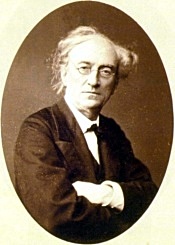
Fjodor Tjoettsjev
(1803-1873)
De twee zusjes
Ik zag jou bij je zusje staan,
In haar herkende ik jou weer,
De blik zo stil, de stem zo puur,
De frisheid van het ochtenduur,
het haar ondeugend als weleer!…
Het was of in een spiegelbeeld
nu alles weer aan mij verscheen:
Van vroeger tijd verdriet en vreugd,
Jouw nu voorgoed verloren jeugd,
Mijn liefde die allengs verdween!. . .
Fjodor Tjoettsjev, Двум сестрам, 1830
Vertaling Paul Bezembinder, 2017
Paul Bezembinder studeerde theoretische natuurkunde in Nijmegen. In zijn poëzie zoekt hij in vooral klassieke versvormen en thema’s naar de balans tussen serieuze poëzie, pastiche en smartlap. Zijn gedichten (Nederlands) en vertalingen (Russisch-Nederlands) verschenen in verschillende (online) literaire tijdschriften. Voorbeelden van zijn werk zijn te vinden op zijn website, www.paulbezembinder.nl
fleursdumal.nl magazine
More in: Archive S-T, Tjoettsjev, Tjoettsjev, Fodor
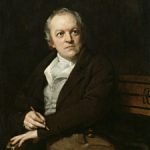
William Blake
The Sick Rose
O Rose thou art sick.
The invisible worm.
That flies in the night
In the howling storm:
Has found out thy bed
Of crimson joy:
And his dark secret love
Does thy life destroy.
William Blake (1757 – 1827)
Poem: The Sick Rose
fleursdumal.nl magazine
More in: Archive A-B, Blake, William

Satie in Paris
Fleeting smoke mesmeric in sound-time,
jumping drone-tones from unsettling man
playing in a lonely shadowed singularity.
Fibrous flickering feet clicking-bawdy songs,
bulking up the waltz, stop-start stutter-noises,
speeding up the early morning cold hands
gravely, moving-pictures pass hysterically by.
The music begins mysteries in living forms,
belting down the hearts of crowds,
walking through the buzzing boulevards,
the actual grudge-work in mortified factories,
a wet-grey urban poverty engulfing the absurd.
He viewed from after and before the effect
of a cheapened life in warfare, in commerce,
before the new migration, the great conflagration,
in revolutions of our hearts, in the light of night,
from the torpedo tobacco begging for fire in bad air.
The wormlike moveable-mass sought salvation
and received craters full of broken sons instead.
Ironic cabaret music played out the times and died.
Underground chambers of rebel artists and composers
seethed sexual ballets, arm-twisted around perversities
in eccentric poses, the dance twisting towards the next.
26.04.09
Vincent Berquez
Vincent Berquez is a London–based artist and poet.
fleursdumal.nl magazine
More in: Archive A-B, Berquez, Vincent, Erik Satie, Satie, Erik, Vincent Berquez
Thank you for reading Fleurs du Mal - magazine for art & literature